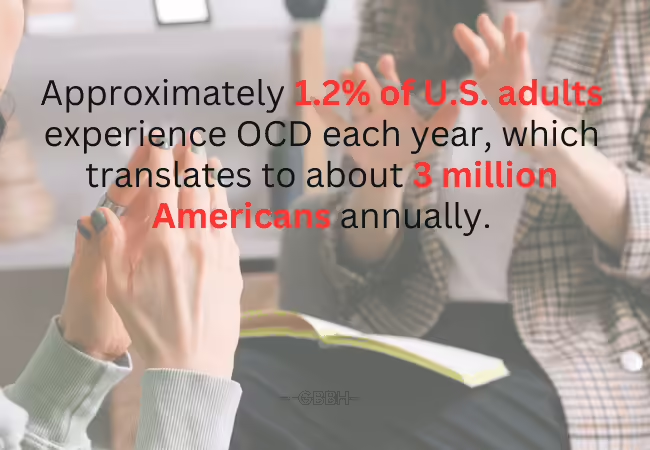Obsessive-Compulsive Disorder (OCD) is sometimes mistaken as simply a desire for cleanliness or order. In actuality, OCD is a significant mental health illness marked by persistent, distressing thoughts and repetitive activities that a person feels forced to engage in to relieve anxiety.
It extends well beyond mere preferences or personality traits, influencing a person’s ability to operate in everyday life. Recognizing the genuine signs of OCD is critical for anyone who may be suffering from it. So, here’s what to look for when identifying actual OCD symptoms. Let’s begin!
Obsessions
Obsessions are unwelcome, persistent thoughts, visions, or desires that create severe anxiety or suffering. These ideas are frequently unreasonable, and persons with OCD are usually aware of them, but they continue to fight for control. The common obsessions include the fear of harm, uncertainty, moral concerns, and contamination.
Compulsions
Compulsions are recurrent behavioral or mental activities that an individual feels compelled to perform to alleviate the distress connected with their obsessions. These activities are frequently nonsensical, yet they bring a brief sense of relief. Common compulsive behaviors include excessive cleaning and washing, checking and rechecking, counting and ordering, and mental rituals.
Identifying the Difference between Everyday Habits and OCD
People are known to double-check things on occasion or to be especially neat or organized. However, the intensity and significance of these activities distinguish OCD from regular routines. For example:
- OCD actions frequently consume more than an hour of one’s day and disturb routines.
- OCD obsessions and compulsions cause substantial mental discomfort.
- People with OCD believe that their behaviors are beyond their control and that they are unable to stop them, despite their best intentions.
- OCD symptoms impair daily activities, relationships, employment, and overall quality of life.
If the habit seriously impairs someone’s ability to function, it is more likely to be a symptom of OCD rather than a quirk or preference.
Some Common Misconceptions about OCD
To fully understand true OCD symptoms, it’s vital to expose several prevalent myths:
- OCD is More Than Just Cleanliness: While some persons with OCD have cleanliness-related obsessions, others may have completely distinct obsessions unrelated to contamination.
- People with OCD Know Their Thoughts Are Irrational: Many persons with OCD are aware that their obsessions and compulsions are irrational, but they continue to engage in them.
- OCD is more than just being a perfectionist: OCD is more than just a need for perfection; it is a crippling mental health problem that interrupts a person’s life and can cause emotional distress.
Seeking help for OCD? Call GBBH!
Do obsessive thoughts and compulsive habits impair your quality of life? Get in touch with GBBH! We will help you get the support and treatment you need to effectively manage your OCD. Our caring team specializes in assisting clients in understanding and overcoming OCD through evidence-based therapy and tailored advice. Don’t let OCD get in the way of your well-being; contact GBBH today to take the first step toward a more balanced, fulfilling life. Call us at (888)278-0716 today to learn more about our services and how we can help you on your journey to recovery!


